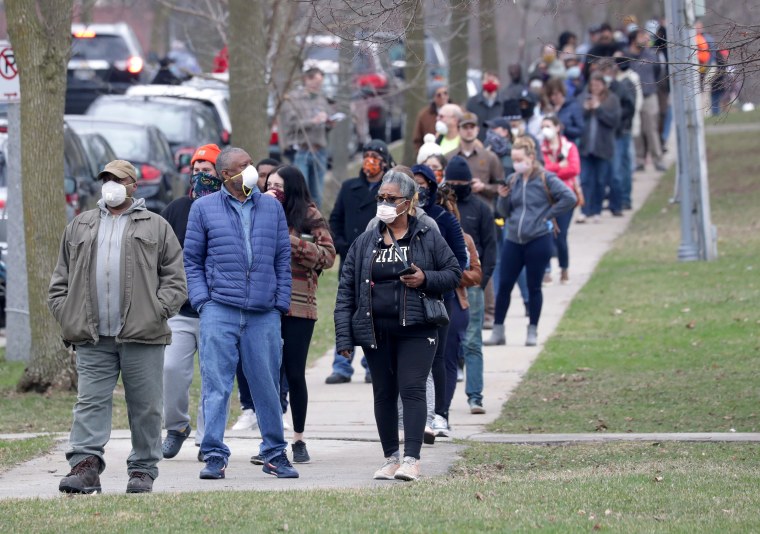Headed into yesterday's statewide elections in Wisconsin, it was widely assumed that the entire ordeal would be a dangerous mess. Those expectations were easily met: voters stood in lines for hours, despite the pandemic, all in the hopes of casting a ballot in contests that obviously should have been delayed.
It's worth pausing, though, to appreciate why this avoidable and hazardous fiasco unfolded as it did.
Wisconsin's Republican-led legislature was asked to change state law to ensure that each of the state's voters received absentee ballots they could cast by mail. GOP lawmakers balked. The Republican-led legislature was then asked to reschedule the elections, so voters wouldn't have to choose between their health and their franchise. GOP lawmakers again said no. They proceeded to file lawsuits to make it as difficult as possible on Badger State residents.
This was not because Republicans were eager to see the results of the latest primary fight between Joe Biden and Bernie Sanders. Rather, it was because there was a state Supreme Court election on the ballot, and GOP officials were desperate to win it.
And why would one state Supreme Court race be so important that Republicans would push the Wisconsin electorate into a potentially dangerous election? Because it might very well affect policymaking in one of the nation's most important swing states for the next decade.
Wisconsin is home to one of the more egregious examples of state legislative gerrymandering in the nation: in the last round of balloting, Democratic candidates received 53% of the votes, while Republicans ended up with 64% of the power.
The party feels the need to keep it that way, which made yesterday's state Supreme Court election that much more significant. Eric Levitz did a terrific job yesterday explaining that incumbent state Supreme Court justice Daniel Kelly -- backed by Republicans -- is central to the GOP's plans for the future.
In the next year or two, Wisconsin will redraw all its electoral maps to comport with the new Census. And [Democratic Gov. Tony Evers] will have the power to veto any gerrymander the legislature enacts. But Republicans could reject that veto, and bring a lawsuit claiming that the legislature has sole authority over redistricting. And if the conservative majority on Wisconsin's Supreme Court buys that argument ... then it will be game over. And Democrats will be all but incapable of governing Wisconsin before 2030.... All of which is to say: Wisconsin Republicans are disenfranchising voters by holding an election mid-pandemic (while blocking measures that would allow all interested voters to safely cast ballots from home) so as to preserve their ability to disenfranchise voters through an egregious partisan gerrymander -- and also, potentially, a voting-roll purge.
There's no denying the extent to which yesterday was a debacle in Wisconsin, but there's an obscene logic to the Republican Party's reasoning.
